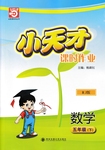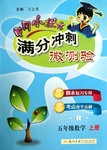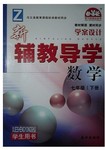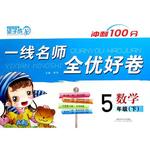
 小天才课时作业系列答案
小天才课时作业系列答案 一课四练系列答案
一课四练系列答案 黄冈小状元满分冲刺微测验系列答案
黄冈小状元满分冲刺微测验系列答案 新辅教导学系列答案
新辅教导学系列答案 阳光同学一线名师全优好卷系列答案
阳光同学一线名师全优好卷系列答案科目:高中英语 来源:2010-2011学年浙江省高三上学期11月月考英语卷 题型:阅读理解
There are still many things that Peter Cooke would like to try his hand at — paper-making and feather-work are on his list. For the moment, though, he will stick to the skill that he has been delighted to make perfect over the past ten years: making delicate and unusual objects out of shells.
As he leads me round his apartment showing me his work, he points to a pair of shell-covered ornaments(装饰品) above a fireplace. “I shan’t be at all bothered if people don’t buy them because I have got so used to them, and to me they’re lovely. I never meant to sell my work commercially. Some friends came to see me about five years ago and said, ‘You must have an exhibition — people ought to see these. We’ll talk to a man who owns an art gallery’”. The result was an exhibition in London, at which 70 per cent of the objects were sold. His second exhibition opened at the gallery yesterday. Considering the enormous prices the pieces command —around £2,000 for the ornaments — an empty space above the fireplace would seem a small sacrifice for Cooke to make.
There are 86 pieces in the exhibition, with prices starting at£225 for a shell-flower in a crystal vase. Cooke insists that he has nothing to do with the prices and is cheerily open about their level: he claims there is nobody else in the world who produces work like his, and, as the gallery-owner told him, “Well, you’re going to stop one day and everybody will want your pieces because there won’t be any more.”
“I do wish, though,” says Cooke, “that I’d taken this up a lot earlier, because then I would have been able to produce really wonderful things — at least the potential would have been there. Although the ideas are still there and I’m doing the best I can now, I’m more limited physically than I was when I started.” Still, the work that he has managed to produce is a long way from the common shell constructions that can be found in seaside shops. “I have a miniature(微型的) mind,” he says, and this has resulted in boxes covered in thousands of tiny shells, little shaded pictures made from shells and baskets of astonishingly realistic flowers.?
Cooke’s quest(追求) for beautiful, and especially tiny, shells has taken him further than his Norfolk shore: to France, Thailand, Mexico, South Africa and the Philippines, to name but a few of the beaches where he has lain on his stomach and looked for beauties to bring home. He is insistent that he only collects dead shells and defends himself against people who write him letters accusing him of stripping the world’s beaches. “When I am collecting shells, I hear people’s great fat feet crunching(嘎吱嘎吱地踩) them up far faster than I can collect them; and the ones that are left, the sea breaks up. I would not dream of collecting shells with living creatures in them or diving for them, but once their occupants have left, why should I not collect them?” If one bases this argument on the amount of luggage that can be carried home by one man, the beauty of whose work is often greater than its natural parts, it becomes very convincing indeed.
1.What does the reader learn about Peter Cooke in the first paragraph?
A. He has produced hand-made objects in different materials.?
B. He hopes to work with other materials in the future.?
C. He has written about his love of making shell objects.?
D. He was praised for his shell objects many years ago.
2.When mentioning the cost of his shell objects, Cooke ____.
A. cleverly changes the subject.
B. defends the prices charged for his work.
C. says he has no idea why the level is so high.
D. notes that his work will not always be so popular.
3.The “small sacrifice” in Paragraph 2 refers to _________.?
A. the loss of Cooke’s ornaments? B. the display of Cooke’s ornaments?
C. the cost of keeping Cooke’s ornaments D. the space required to store Cooke’s ornaments
4.What does Cooke regret about his work?
A. He is not as famous as he should have been.?B. He makes less money than he should make.
C. He is less imaginative than he used to be.? D. He is not as skillful as he used to be. ?
5.What does the reader learn about Cooke's shell-collecting activities?
A. Not everyone approves of what he does.
B. Other methods might make his work easier.
C. Other tourists get in the way of his collecting.
D. Not all shells are the right size and shape for his work
查看答案和解析>>
科目:高中英语 来源:2012届度辽宁省高三上学期第三次月考英语题 题型:其他题
注意: 如果选 E 涂 AD, 选F 涂BD,选G涂 CD。
I started to study English by myself when I was about 15 because of Michael Jackson. He’s been my idol since 1991, and I really wanted to understand him and his music. 1. I was very patient, and that helped me a lot in the process of learning English by myself.
Actually, I can’t describe the techniques I used to learn it, because it was almost automatic for me to start understanding English after a period of hard work trying to translate texts, dialogues and songs. 2.
One thing that I can say is that I started learning English through comparing patterns and observing the language structure, comparing it to Portuguese and trying to memorize rules. 3. Another thing that helped me a lot is the fact that I would spend hours studying the uses, tenses, etc. of the words I could notice.
4. It was the hardest part of the process for me, because the only source I had was music, although I used a pronunciation dictionary , too.
5. Later on I entered UFMG and really started studying English. Today I’m a teacher at an English Course, and I really enjoy it, because I can improve my English each day.
|
A.Despite the difficulty, I could learn everything well. |
|
B.So I really can’t say exactly how I’ve achieved proficiency(熟练). |
|
C.With the help of my teacher, I learned pronunciation well. |
|
D.So I can say that a strong will is the key to my success. |
E. After having a large vocabulary, I started working on pronunciation.
F. And I used to make lists of words in order to memorize them and their meanings.
G.I used to use a dictionary to find the meaning of each word in songs written by him.
查看答案和解析>>
科目:高中英语 来源:2013届度辽宁省庄河六高高二第一次月考英语题 题型:阅读理解
Last year.I took a sightseeing trip to Washington, DC.I heard a voice say, “Can you help me?” When I turned around, I saw an elderly blind woman with her hand extended.Immediately, I pulled out all of my change and placed it on her hand without even looking at her.But the blind woman smiled and said, “I don’t want your money.I just need help finding the post office.”
In an instant, I realized what I had done.I acted with prejudice―I judged another person simply for what I assumed she had to be.I hated what I saw in myself.
The thing I had forgotten about myself is that I am an immigrant.I left Honduras and arrived in the US at the age of 15.I started my new life with two suitcases, my brother and sister.Through the years, I have been a doorkeeper, cashier and pizza delivery driver among many other humble(卑微的)jobs, and eventually I became a network engineer.
In my own life, I have experienced prejudice.I remember a time―at the age of 17―when I was a busboy, I heard a father tell his little boy that if he did not do well in school, he would end up like me.
But now, living in my American middle-class lifestyle, it is too easy to forget my past, to forget who I am, where I have been ,and to lose sight of where I want to be going.That blind woman on the streets cured me of my blindness.She reminded me of my belief in humility(谦虚).By the way, I helped that lady to the post office.I hope to thank her for the priceless lesson.
1.How did the writer give the blind woman money?
A.In a modest way B.In a polite way
C.In an impatient way. D.In a painful way
2.According to the text, the writer__________.
A.still lives a poor life
B.was busy with his work
C.was born in Honduras
D.was a native of Washington D.C.
3.According to the text, the author most probably agrees that one should__________.
A.be nice to the elderly and the disabled
B.try to experience different kinds of culture
C.treat others equally with love and respect
D.think about one’s past as often as possible
4.What would be the best title of the text?
A.A priceless lesson B.An act of prejudice
C.A sightseeing trip D.A humble moment
查看答案和解析>>
科目:高中英语 来源:2010年普通高等学校招生全国统一考试(重庆卷)英语 题型:完型填空
第二节 完形填空 (共20小题:每小题1.5分,满分30分)
请阅读西面短文,,掌握其大意,然后从36~55各题所给的四个选项(A、B、C和D)中,选出最佳选项,并在答题卡上将该选项的标号涂黑。
Introduction to letters to Sam
Dear Reader,
Please allow me to tell you something before you read this book. When my 36 ,Sam,was born , my heart was filled with joy . I had been sitting in a wheelchair for 20 years before then ,and I have been 37 ill many times . So I wondered if I would have the
38 to tell Sam what I had 39 .
For years I have been hosting a program on the 40 and writing articles for a magazine . Being 41 to move freely , I have learned to sit still and keep my heart 42 , exchanging thoughts with thousands of listeners and 43 . So when Sam was born .I
44 to tell him about school and fridship , romance and work , love and everything else . That how I started to write these 45 , I hope that Sam would 46 them sooner or later .
However , that expectation 47 when Sam showed aigns of autism (自闭症) at the age of two , He had actually stopped talking before the discovery of the signs . He 48 to communicate with others , even the family members . That was 49 for me but didn’t stop me writing on . I realized that I even 50 now to tell him . I wanted him to 51 what it means to be “diffenet” from others , and learn how to fight against the misfortune he’ll 52
as I myself .. his grandfather ,did ,I just 53 if I could write all that I wanted to say in the rest of my life .
Now . 54 the book has been pubhshed . I have been given the chance , Every chapter in the book is a letter to Sam: some about my life .and all about what it means to be a 55 .
Daniel Gottlied
36.A.son B. nephew C.brother D.grandson
37.A.seriously B.mentally C. slightly D.quictly
38. A.ability B.time C.courage D.reaponsibuty
39. A.writen B. sulfered C.observed D.lost
40. A. radio B. television C.stage D.bed
41. A.ready B.unable C.anxious D.cager
42. A.warm B.broken C.closed D.open
43. A.hosts B.vistors C. readers D.reportets
44. A.boon B.stopped C.forgot D.decided
45.A.letters B.emunls C.books D.diaries
46. A.bad B. read C. collecd D.keep
47. A. decdoped B.disappeared C. changed D.arrived
48. A.ined B.refused C. regreed D.hoped
49. A.exciting B.aeceptable C.strange D.heartherathing
50. A.less B.eventhing C.more D.nothing
51. A. understand B.explam C.believe D.question
52. A.fear B.face C. know D.cause
53. A.felt B.guessed C.saw D.doubted
54. A. as B.once C. thought D.if
55. A.teacher B. child C. man D.witct
查看答案和解析>>
科目:高中英语 来源:2013届云南省高一下学期期末考试英语题 题型:完型填空
In the doorway of my home, I looked closely at my 23-year-old son, Daniel. In a few hours he would be flying to France to 36 a different life. It was a transitional(过渡的)time in Daniel's life. I wanted to 37 him some words of significance. But nothing came from my lips, and this was not the 38 time I had let such moments pass.
When Daniel was five, I took him to the bus stop on his first day of kindergarten. He asked, “What is it going to be like, Dad? Can I do it?” Then he walked 39 the steps of the bus and disappeared inside. The bus drove away and I said nothing. A decade later, a similar 40 played itself out. I drove him to college. As I started to leave, I tried to think of something to say to give him 41 and confidence as he started this new stage of life. Again, words 42 me.
Now, as I stood before him, I thought of those 43 opportunities. How many times have I let such moments 44 ? I don't find a quiet moment to tell him what they have 45 to me. Or what he might 46 to face in the years ahead. Maybe I thought it was not necessary to say anything.
What does it matter in the course of a lifetime if a father never tells a son what he really thinks of him? 47 as I stood before Daniel, I knew that it did matter. My father and I loved each other. Yet, I always 48 never hearing him put his 49 into words. Now I could feel my palms sweat and my throat tighten. Why is it so 50 to tell a son something from the heart?
My mouth turned dry, and I knew I would be able to get out only a few words clearly. “Daniel,” I said, “If I could have picked, I would have picked you.” That's all I could say. He hugged me. For a moment, the world 51 , and there were just Daniel and me. He was saying something, but tears misted my eyes, and I couldn't understand what he was saying. All I was 52
of was the stubble(短须)on his chin as his face pressed 53 mine. What I had said to Daniel was 54 . It was nothing. And yet, it was 55 .
1.A. experience B. spend C. enjoy D. shape
2.A. show B. make C. leave D. instruct
3.A. last B. first C. very D. next
4.A. upward B. into C. down D. up
5.A. sign B. scene C. scenery D. sight
6.A. interest B. benefit C. courage D. measure
7.A. failed B. discouraged C. struck D. troubled
8.A. future B. embarrassing C. obvious D. lost
9.A. last B. pass C. fly D. remain
10.A. counted B. meant C. valued D. existed
11.A. think B. want C. expect D. wish
12.A. But B. And C. Instead D. So
13.A. wondered B. regretted C. minded D. tried
14.A. views B. actions C. feelings D. attitudes
15.A. important B. necessary C. hard D. complex
16.A. disappeared B. changed C. progressed D. advanced
17.A. pleased B. convinced C. aware D. tired
18.A. by B. against C. on D. with
19.A. clumsy B. gentle C. violent D. moving
20.A. none B. all C. anything D. everything
查看答案和解析>>
湖北省互联网违法和不良信息举报平台 | 网上有害信息举报专区 | 电信诈骗举报专区 | 涉历史虚无主义有害信息举报专区 | 涉企侵权举报专区
违法和不良信息举报电话:027-86699610 举报邮箱:58377363@163.com